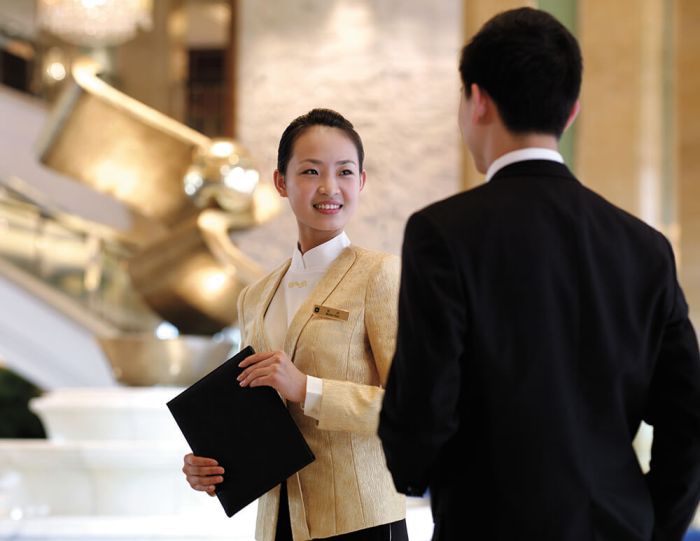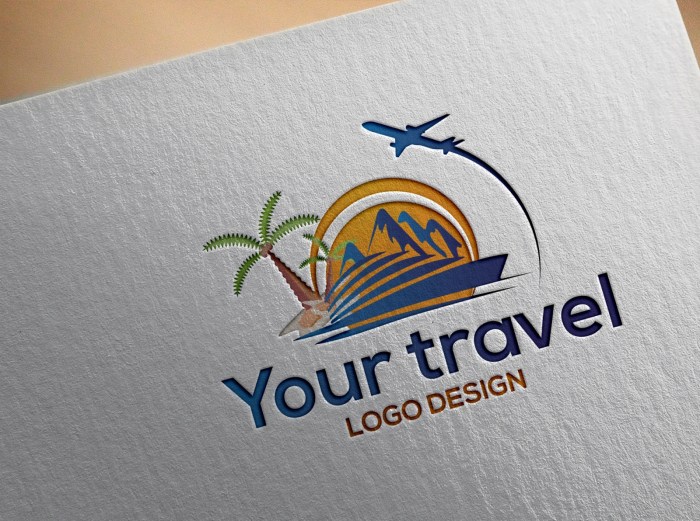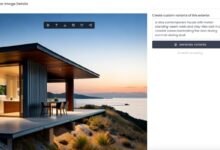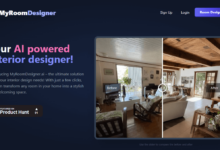Luxury Travel Agency A Comprehensive Guide
Luxury Travel Agency: The allure of bespoke journeys, personalized service, and unforgettable experiences defines the luxury travel market. This exploration delves into the intricacies of establishing and operating a successful luxury travel agency, from understanding the discerning clientele and competitive landscape to crafting compelling marketing strategies and ensuring sustainable practices. We will examine the key elements that differentiate luxury travel from standard tourism, focusing on the unique needs and expectations of high-net-worth individuals.
This guide provides a roadmap for navigating the complexities of the luxury travel industry, encompassing market analysis, brand building, operational strategies, and client relationship management. We will also address the crucial aspects of ethical and sustainable tourism, emphasizing responsible practices within the luxury travel sector. The ultimate aim is to equip aspiring entrepreneurs and existing agencies with the knowledge and tools necessary to thrive in this competitive yet rewarding niche.
Defining Luxury Travel
Luxury travel transcends mere transportation and accommodation; it’s an experience meticulously crafted to deliver unparalleled comfort, personalized service, and unforgettable memories. It’s about exceeding expectations and creating moments of genuine delight and wonder, leaving a lasting impression far beyond a standard vacation.Luxury travel distinguishes itself from standard travel through a combination of superior quality, personalized service, and exclusive access.
While standard travel focuses on functionality and affordability, luxury travel prioritizes exceptional experiences and unparalleled comfort. This difference is reflected in every aspect of the journey, from the initial consultation to the final farewell.
Key Differentiators Between Luxury and Standard Travel
The core difference lies in the level of personalization and the quality of service provided. Luxury travel emphasizes bespoke itineraries tailored to individual preferences, while standard travel often involves pre-packaged tours with limited flexibility. Luxury accommodations are characterized by exceptional amenities, spaciousness, and impeccable service, exceeding the basic comforts found in standard hotels or resorts. Access to exclusive experiences, such as private tours of historical sites or private dining in Michelin-starred restaurants, further sets luxury travel apart.
Examples of Services and Amenities Defining Luxury Travel
Luxury travel offers a wide array of services and amenities designed to enhance the overall experience. This includes private jet or first-class air travel, accommodations in five-star hotels or exclusive resorts with personalized butler service, chauffeured transportation in luxury vehicles, curated private tours and excursions led by expert guides, access to exclusive events and venues, and bespoke dining experiences catering to individual dietary preferences and tastes.
Consider, for instance, a private yacht charter in the Mediterranean, complete with a personal chef and crew, or a guided safari in Tanzania, staying in a luxurious tented camp with unparalleled views of the Serengeti. These are examples of the elevated experiences that define luxury travel.
Target Demographic for Luxury Travel Agencies
The target demographic for luxury travel agencies comprises high-net-worth individuals (HNWIs) and ultra-high-net-worth individuals (UHNWIs), typically with significant disposable income and a desire for exceptional travel experiences. This group often includes successful entrepreneurs, executives, celebrities, and individuals inheriting significant wealth. They value personalized service, exclusivity, and unique experiences over price, prioritizing quality and bespoke service above all else. Age is less of a defining factor than financial capability and a desire for premium experiences.
Customer Persona: The Luxury Traveler
Our typical luxury traveler, let’s call her “Alexandra,” is a successful businesswoman in her late 40s. She is highly discerning, values her time and efficiency, and seeks unique and memorable experiences. Alexandra is comfortable spending significant amounts on travel, prioritizing personalized service, exclusive access, and seamless travel arrangements. She prefers curated itineraries that incorporate cultural immersion, culinary exploration, and opportunities for relaxation and rejuvenation.
She is technologically savvy, appreciates personalized communication, and expects proactive service that anticipates her needs before she even articulates them. Alexandra is a sophisticated traveler who seeks authentic experiences and appreciates attention to detail. She may travel solo, with her partner, or with a small group of close friends or family.
Competitive Landscape
The luxury travel market is fiercely competitive, with established players and emerging disruptors vying for a share of the high-net-worth individual (HNWI) clientele. Understanding this landscape is crucial for any agency aiming to thrive. Success hinges on a clear understanding of competitor strengths and weaknesses, coupled with a robust differentiation strategy.
Comparison of Leading Luxury Travel Agencies
Three leading agencies – Abercrombie & Kent, Scott Dunn, and Black Tomato – offer contrasting approaches to luxury travel. Abercrombie & Kent (A&K) is known for its long history, established brand recognition, and extensive global network of curated experiences. Their strength lies in classic, sophisticated journeys, often encompassing private jet expeditions and meticulously planned itineraries. However, their established model might be perceived as less flexible or innovative compared to newer competitors.
Scott Dunn specializes in bespoke family travel, leveraging a strong reputation for creating tailored experiences for multigenerational families. A weakness could be a perceived higher price point compared to agencies offering a broader range of options. Black Tomato, on the other hand, focuses on unique and adventurous experiences, often incorporating off-the-beaten-path destinations and personalized, curated itineraries. While highly innovative and appealing to a younger, more adventurous clientele, their relative newness compared to A&K could mean less established relationships with luxury hotels and providers.
Key Competitive Advantages of a Successful Luxury Travel Agency
A successful luxury travel agency requires more than just offering expensive trips. Key competitive advantages include unparalleled personalized service, access to exclusive experiences and accommodations unavailable to the general public, deep expertise in specific destinations or travel styles, and a strong reputation built on exceptional client testimonials and positive word-of-mouth referrals. Proactive communication, anticipating client needs before they are even voiced, and seamless trip execution are also crucial differentiators.
Luxury travel agencies curate unforgettable experiences, often involving stays in opulent hotels. The attention to detail extends beyond the itinerary; consider the exquisite craftsmanship found in the accommodations, often reflecting the principles of Luxury Interior Design. These agencies understand that the environment plays a crucial role in shaping the overall luxury experience, ensuring every element contributes to a truly memorable journey.
The ability to leverage technology to streamline booking processes and enhance the overall customer experience, such as personalized mobile apps or virtual reality trip previews, can also provide a significant competitive edge.
Strategies for Differentiation
Differentiation in the luxury travel market requires a unique selling proposition (USP). This could involve specializing in a niche market segment, such as sustainable luxury travel, adventure travel for families, or luxury wellness retreats. Another strategy is to cultivate a strong brand identity that resonates with a specific target audience through sophisticated marketing and consistent brand messaging. Building strong relationships with luxury hotels, private jet operators, and other high-end service providers, securing exclusive access to properties and experiences, is essential.
Investing in exceptional customer service training for staff and employing highly skilled travel consultants with extensive destination expertise can further differentiate the agency.
Current Market Trends in the Luxury Travel Industry
The luxury travel industry is witnessing several key trends. Sustainable and responsible tourism is gaining significant traction, with high-net-worth individuals increasingly seeking eco-friendly and ethically conscious travel options. Experiential travel, focusing on unique and immersive experiences rather than simply luxurious accommodations, is also a dominant trend. The rise of personalized and bespoke travel, tailored to individual preferences and needs, is another significant factor.
Finally, technology is playing an increasingly important role, with virtual reality previews, AI-powered trip planning tools, and personalized mobile apps enhancing the customer journey and making the booking process more seamless and engaging. For example, the increasing popularity of private jet travel reflects the desire for personalized, efficient, and exclusive travel experiences, allowing clients to circumvent the hassles of commercial flights and enjoy greater comfort and flexibility.
Marketing and Branding
Crafting a successful marketing and branding strategy is paramount for a new luxury travel agency aiming to capture a discerning clientele. This requires a sophisticated approach that leverages digital channels effectively and builds a brand identity that resonates with the values and aspirations of high-net-worth individuals. The following sections detail key components of this strategy.
Digital Marketing Strategy
A robust digital marketing strategy is crucial for reaching affluent travelers. This involves a multi-faceted approach utilizing various online platforms. Targeting should focus on high-income demographics with interests aligning with luxury travel experiences, such as bespoke adventures, exclusive accommodations, and unique cultural immersion. Paid advertising on platforms like Google Ads and social media channels (Instagram, Facebook, LinkedIn) will be essential, focusing on highly targeted campaigns based on demographics, interests, and online behavior.
Search Engine Optimization () is vital to ensure organic visibility on search engines for relevant s related to luxury travel destinations and experiences. Content marketing, through a blog featuring high-quality articles and destination guides, will attract organic traffic and establish the agency as a thought leader in the luxury travel space. Email marketing will nurture leads and maintain relationships with existing clients through personalized communications and exclusive offers.
Luxury travel agencies handle every detail of your extravagant getaways, ensuring a seamless and unforgettable experience. However, peace of mind extends beyond the vacation itself; that’s why many high-net-worth clients also utilize services like Remote Home Monitoring to keep an eye on their properties while they’re away. This allows them to fully relax and enjoy their luxury trip knowing their home is secure, ultimately enhancing the overall luxury travel experience.
Finally, strategic partnerships with luxury lifestyle brands and influencers can significantly expand reach and credibility.
Brand Identity Design
The brand identity should convey exclusivity, sophistication, and personalized service. The logo should be timeless and elegant, perhaps incorporating a sophisticated monogram or a stylized graphic element representing travel or exploration. For example, a stylized compass rose, subtly incorporating the agency’s initials, could evoke a sense of adventure and discovery. The color palette should reflect luxury and tranquility, possibly using deep blues, rich greens, or sophisticated gold accents.
The brand voice should be confident, knowledgeable, and subtly aspirational, avoiding overly flamboyant or boastful language. It should focus on conveying a sense of trust and expertise, emphasizing the personalized service and curated experiences offered. All communication materials, from the website to marketing collateral, should maintain a consistent and high-quality aesthetic, reflecting the brand’s commitment to excellence.
Luxury travel agencies curate unforgettable experiences, from secluded villas to private jet journeys. To truly unwind after such an adventure, however, consider refreshing your home environment with a revitalizing makeover; check out this guide for inspiration: Home Interior Makeover. Returning to a beautifully redesigned space enhances the overall luxury experience, making the transition back to daily life smoother and more enjoyable.
Social Media Content Calendar
A well-structured social media content calendar is vital for consistent engagement. The calendar should incorporate a mix of high-quality visuals (professional photography and videography showcasing stunning destinations and luxury accommodations), behind-the-scenes glimpses of curated experiences, client testimonials, and inspirational content related to luxury travel. Posting frequency should be consistent, aiming for several posts per week across different platforms, tailored to each platform’s specific audience and best practices.
The calendar should also incorporate strategic use of paid social media advertising to reach a wider audience and promote specific travel packages or destinations. Tracking key performance indicators (KPIs) such as engagement rates, website traffic, and lead generation will help optimize content strategy and maximize ROI. Consider using a social media management tool to schedule posts and monitor performance effectively.
Storytelling to Connect with Potential Travelers
Storytelling is crucial for connecting emotionally with potential clients. Instead of simply listing features and benefits, the agency should focus on crafting compelling narratives that evoke a sense of wonder, adventure, and personal transformation. These stories could highlight the unique experiences offered, focusing on the emotional impact of travel and the memories created. For example, a story could detail a client’s journey through a remote region, emphasizing the personal connection with local culture and the sense of accomplishment achieved.
Visual storytelling, through high-quality photography and videography, will amplify the emotional impact. Client testimonials can also be woven into narratives, demonstrating the agency’s ability to deliver exceptional experiences. By showcasing authentic stories, the agency can build trust and establish a strong emotional connection with potential clients, positioning itself as a partner in creating unforgettable travel experiences.
Service Offerings and Packages
Our luxury travel agency crafts bespoke experiences, meticulously designed to exceed expectations. We understand that luxury travel is more than just a vacation; it’s an investment in creating unforgettable memories. Our packages are tailored to individual preferences, ensuring a seamless and personalized journey from start to finish.We offer a diverse range of services, from meticulously planned itineraries to exclusive access to unique experiences.
Our commitment to exceptional service ensures that every detail is flawlessly executed, leaving our clients with a sense of unparalleled luxury and satisfaction.
Bespoke Luxury Travel Packages and Itineraries
We provide detailed itineraries for each bespoke package. These itineraries are collaboratively developed with our clients, ensuring that every aspect reflects their individual tastes and preferences. Below are two examples illustrating the depth and personalization we offer:
Example 1: The Italian Renaissance Escape (10 Days)
This package focuses on exploring the art, culture, and culinary delights of Italy. It includes private guided tours of Florence’s Uffizi Gallery and the Vatican Museums in Rome, exclusive wine tastings in Tuscany, and stays in luxurious boutique hotels. The itinerary is flexible, allowing for adjustments based on client preferences. For instance, a cooking class in Bologna or a private gondola ride in Venice could be added.
Example 2: The African Safari Adventure (14 Days)
This adventure package offers an immersive safari experience in Tanzania. It features private game drives in the Serengeti National Park, hot air balloon safaris over the Masai Mara, and stays in luxurious lodges with breathtaking views. Clients can customize their experience by selecting specific wildlife viewing activities or adding extensions to explore other parts of East Africa.
Pricing Models for Luxury Travel Packages
Our pricing models are transparent and tailored to the specific needs and preferences of each client. We offer various options to suit different budgets and travel styles:
Per-Person Pricing: This model offers a clear and straightforward cost per person, making it easy to budget for group travel.
All-Inclusive Packages: This comprehensive approach covers flights, accommodation, activities, meals, and ground transportation, offering exceptional value and peace of mind.
A La Carte Pricing: Clients can choose individual components, allowing for complete control over their spending and the selection of specific experiences.
Custom Quotes: For truly bespoke itineraries, we provide personalized quotes that reflect the unique elements and services included in the package.
Luxury Travel Destinations and Experiences
We curate exceptional experiences across the globe, offering a diverse range of destinations and activities. The table below highlights a selection of our offerings:
| Destination | Experience | Price Range | Image Description |
|---|---|---|---|
| Kyoto, Japan | Traditional Tea Ceremony and Geisha District Exploration | $5,000 – $10,000 | A serene image depicting a traditional Japanese tea house nestled amidst a lush bamboo forest, with a geisha elegantly dressed in a kimono gracefully serving tea. The image evokes a sense of tranquility and cultural immersion. |
| Machu Picchu, Peru | Private guided tour of Machu Picchu and Inca Trail trek | $8,000 – $15,000 | A breathtaking panoramic view of Machu Picchu, shrouded in mist with vibrant green mountains in the background. The image showcases the majestic ruins and the surrounding landscape, emphasizing the scale and beauty of the site. |
| Santorini, Greece | Luxury yacht cruise with private chef and sunset views | $12,000 – $25,000 | A luxurious yacht sailing along the iconic white-washed cliffs of Santorini at sunset. The image highlights the stunning caldera views, the pristine yacht, and the romantic ambiance of the experience. |
| The Maldives | Overwater bungalow stay with private butler service | $15,000 – $30,000 | An image of a luxurious overwater bungalow in the Maldives, showcasing crystal-clear turquoise waters, pristine white sand beaches, and a breathtaking sunset. The bungalow features a private deck and direct access to the ocean. |
Technology and Operations
In today’s competitive luxury travel market, leveraging technology is no longer a luxury; it’s a necessity. Efficient operations, seamless customer experiences, and robust security are all underpinned by the right technological infrastructure and processes. This section will explore the crucial role technology plays in managing a successful luxury travel agency.Technology significantly streamlines operations, enhances customer service, and ensures data security, all of which are paramount in the luxury travel sector.
The right tools can transform a business from reactive to proactive, allowing for personalized service at scale and efficient management of complex itineraries.
CRM Systems for Enhanced Customer Relationships
A robust Customer Relationship Management (CRM) system is the cornerstone of providing exceptional service in the luxury travel sphere. A CRM goes beyond simple contact management; it allows for detailed profiling of clients, tracking of past travel preferences, and anticipating future needs. For example, a CRM can automatically flag a client’s upcoming birthday, allowing for a personalized email offering a bespoke travel experience.
Luxury travel agencies are constantly seeking innovative ways to enhance the client experience. This often involves integrating technology seamlessly into the journey, and extending that personalized service even to the client’s home. For instance, pre-trip preparations might include setting up smart home features through services like Smart Home Integration , ensuring a comfortable and automated environment upon their return.
Ultimately, this integrated approach elevates the overall luxury travel experience, creating a holistic sense of ease and convenience.
Furthermore, it can centralize all communication – emails, calls, and notes – creating a comprehensive view of the client’s journey and enabling personalized recommendations tailored to their unique tastes and past experiences. This level of personalized attention is crucial for fostering loyalty and building lasting relationships with high-net-worth individuals. Detailed records of preferences, including destination choices, accommodation standards, and preferred activities, allow for proactive and anticipatory service, exceeding client expectations.
Secure Payment Gateways and Data Protection
Protecting sensitive client data and ensuring secure payment processing are paramount in the luxury travel industry. High-net-worth individuals entrust agencies with significant financial information and personal details, demanding the highest level of security. Implementing robust security measures, including PCI DSS compliant payment gateways, end-to-end encryption, and multi-factor authentication, is not just good practice; it’s essential for maintaining client trust and complying with regulations.
Data breaches can severely damage reputation and lead to significant financial losses. Regular security audits and employee training are crucial for maintaining a secure environment. Furthermore, adhering to GDPR and other relevant data privacy regulations is vital for responsible data handling and maintaining client confidentiality. This includes transparent data handling policies, secure data storage, and the ability to respond promptly and effectively to any data security incidents.
Workflow Diagram for Handling Booking Requests and Client Inquiries
The efficient handling of booking requests and client inquiries is crucial for maintaining a high level of service. A well-defined workflow ensures smooth operations and minimizes delays. The following diagram illustrates a typical workflow:[Imagine a diagram here. The diagram would visually represent a flow chart. It would start with “Client Inquiry/Booking Request (Email, Phone, Website)” and branch into “Inquiry Triage (Prioritize urgency and type)” which then leads to “Assign to Specialist (Based on expertise and region)”.
Next, it would show “Client Consultation (Discuss needs and preferences)”, followed by “Itinerary Development & Proposal (Custom-tailored based on client’s input)”. Then it would show “Review & Confirmation (Client feedback incorporated)”, followed by “Booking Confirmation & Payment (Secure payment gateway)”. Finally, it would show “Pre-Trip Communication & Support (Updates and assistance)” and “Post-Trip Feedback & Follow-up (Gather feedback for continuous improvement)”.]This structured approach ensures that all requests are handled promptly and efficiently, leading to increased client satisfaction and operational efficiency.
The use of specialized software can automate certain aspects of this workflow, further improving speed and accuracy.
Client Management and Relationships

Source: theluxurytravelagency.com
Cultivating strong relationships with high-net-worth individuals (HNWIs) is paramount for success in the luxury travel industry. These clients expect personalized, seamless experiences and a level of service that transcends typical customer interactions. Building trust and fostering loyalty are key to long-term success and repeat business.Exceptional customer service in the luxury travel sector requires a proactive, anticipatory approach. It’s about anticipating needs before they’re even voiced and exceeding expectations consistently.
This involves a deep understanding of individual client preferences and a dedication to personalized attention at every touchpoint.
Strategies for Building Strong Relationships with High-Net-Worth Individuals, Luxury Travel Agency
Building lasting relationships with HNWIs requires a multi-faceted approach focusing on personalized service, proactive communication, and a genuine understanding of their needs and preferences. It’s about creating a bespoke experience tailored to each individual, not simply selling a travel package. This involves diligent record-keeping, detailed communication, and a proactive approach to problem-solving.
Providing Exceptional Customer Service in the Luxury Travel Sector
Exceptional customer service in this sector involves exceeding expectations at every stage of the travel journey. This starts with a highly personalized initial consultation, where travel advisors take the time to understand the client’s unique preferences, travel style, and desired outcomes. It continues through meticulous itinerary planning, proactive communication, and on-the-ground support, ensuring a seamless and stress-free experience.
A dedicated concierge service providing assistance with pre-trip arrangements, on-site support, and post-trip follow-up further enhances the experience. For instance, arranging private airport transfers, securing exclusive access to events or venues, or providing personalized recommendations based on the client’s interests all contribute to exceptional service.
Handling Customer Complaints and Feedback
A robust system for handling customer complaints and feedback is crucial for maintaining a positive reputation and fostering client loyalty. This involves establishing clear communication channels, such as dedicated phone lines, email addresses, and online platforms, for clients to voice their concerns. All complaints should be addressed promptly and professionally, with a focus on finding solutions that satisfy the client.
Luxury travel agencies often focus on providing seamless, high-end experiences. Consider the convenience factor; even something as seemingly mundane as accessing your home after a long flight is enhanced with modern technology. For instance, a smart home system featuring a Smart Garage Door Opener can add a touch of effortless luxury to your return, ensuring a smooth transition from your luxurious journey back to your personal sanctuary.
This is just one example of how technology can elevate the overall luxury travel experience.
Feedback, both positive and negative, should be actively solicited and analyzed to identify areas for improvement and enhance service delivery. For example, a formal feedback form following each trip allows for constructive criticism and identifies areas for service improvements. Regular client surveys can also provide valuable insights into client satisfaction levels.
Personalized Service Enhancement
Personalized service is the cornerstone of the luxury travel experience. It’s about tailoring every aspect of the trip to the individual client’s preferences, from choosing the right hotel and activities to arranging private transportation and securing exclusive access to events. This might involve curating a bespoke itinerary based on the client’s interests, such as arranging private cooking classes in Italy for a food enthusiast or securing a private tour of a historical site for a history buff.
Remembering personal details, such as birthdays or anniversaries, and incorporating them into the travel experience demonstrates a genuine interest and builds rapport. This attention to detail is what truly sets luxury travel apart and fosters long-term client loyalty. For example, a handwritten welcome note in the client’s preferred language placed in their hotel room upon arrival adds a touch of personalization and creates a lasting positive impression.
Sustainability and Ethical Considerations
The luxury travel market is undergoing a significant shift, with sustainability and ethical considerations moving from niche concerns to central pillars of brand identity and client expectation. Increasingly, discerning travelers are prioritizing experiences that minimize their environmental impact and support local communities, demanding transparency and responsible practices from the companies they patronize. This presents both challenges and opportunities for luxury travel agencies.
The growing awareness of climate change and its impact on vulnerable ecosystems is driving a demand for eco-conscious travel options. Simultaneously, ethical concerns surrounding labor practices, fair wages, and the preservation of cultural heritage are becoming increasingly important factors in the decision-making process for luxury travelers. This evolving landscape necessitates a proactive approach to sustainability and ethical tourism, transforming it from a mere marketing point to a core operational principle.
Eco-Friendly Luxury Travel Options
Examples of sustainable luxury travel experiences abound. Private villas powered by renewable energy, offering secluded escapes with minimal environmental footprint, are becoming increasingly popular. Similarly, luxury train journeys, such as the Rocky Mountaineer in Canada, provide immersive experiences with reduced carbon emissions compared to air travel. Furthermore, many luxury lodges and resorts are actively implementing sustainable practices, such as water conservation initiatives, locally sourced food, and waste reduction programs.
These offerings cater to the growing demand for high-end travel that aligns with ethical and environmental values.
Ethical Considerations in Luxury Travel
Ethical considerations in luxury travel encompass a broad range of issues. Fair wages and safe working conditions for employees within the tourism industry are paramount. The agency should ensure that all partners and suppliers adhere to ethical labor standards, promoting fair compensation and respectful treatment of workers. Additionally, responsible sourcing of materials and products is crucial, minimizing the impact on local ecosystems and communities.
Supporting local businesses and artisans helps preserve cultural heritage and provide economic opportunities for local populations, a key component of responsible tourism. Finally, minimizing the disruption of local communities and respecting their traditions and customs is essential for ensuring a positive and ethical travel experience.
Potential Partnerships with Sustainable Tourism Organizations
Collaborating with established sustainable tourism organizations enhances credibility and provides access to best practices. Potential partnerships could include organizations like the Global Sustainable Tourism Council (GSTC), which provides globally recognized standards for sustainable tourism, and Rainforest Alliance, which focuses on protecting biodiversity and improving the livelihoods of farming communities. Partnerships with local conservation organizations and community-based tourism initiatives can further strengthen a commitment to responsible and ethical travel.
These collaborations provide opportunities for knowledge sharing, resource access, and joint marketing efforts, reinforcing the agency’s commitment to sustainable luxury travel.
End of Discussion

Source: dribbble.com
In conclusion, the success of a luxury travel agency hinges on a delicate balance of meticulous planning, personalized service, and a deep understanding of the discerning clientele. By effectively leveraging technology, embracing sustainable practices, and fostering strong client relationships, agencies can not only meet but exceed the expectations of high-net-worth travelers, creating truly unforgettable and enriching experiences. The luxury travel market, while competitive, presents significant opportunities for those who can consistently deliver exceptional value and personalized service.
The strategies and insights presented here provide a solid foundation for building a thriving and reputable luxury travel agency.
Quick FAQs: Luxury Travel Agency
What are the typical profit margins for a luxury travel agency?
Profit margins vary significantly depending on factors like the agency’s size, service offerings, and operational efficiency. However, luxury travel agencies often enjoy higher profit margins than standard travel agencies due to the higher value of their packages and services.
How do luxury travel agencies handle potential emergencies or disruptions during client trips?
Robust contingency plans are crucial. Luxury agencies typically have 24/7 support systems and established relationships with local partners to swiftly address issues such as flight cancellations, accommodation problems, or unforeseen circumstances. Proactive communication with clients is key.
What are some common legal and insurance considerations for a luxury travel agency?
Essential considerations include appropriate business licensing, liability insurance covering potential accidents or trip disruptions, and compliance with data protection regulations regarding client information. Seeking legal counsel is recommended to ensure full compliance.
How can a luxury travel agency attract and retain high-net-worth clients?
Building strong relationships through personalized service, exclusive offers, and consistent communication is paramount. Networking within high-net-worth circles and leveraging referrals are also effective strategies. Demonstrating expertise and providing exceptional value are key to client retention.









